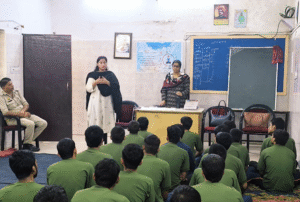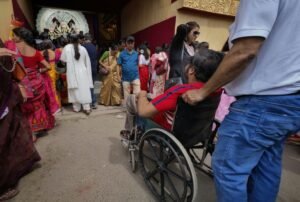
How are you? What’s going on? Are you well? Where are you? Do you want to get on a call? Are you safe? Are you okay? What day is it? What time is it? Where do we go from here? Are we lost or are we found? Where do we run? What is relevant? Are we just existing? Are we wasting our lives? Is this everything? How do we stay connected? How can we disconnect?
It’s 2020 and these are some thoughts that I think most of us have had.
In the beginning, we were probably stoked about the new year, planning amazing things around it without the slightest idea that a pandemic will engulf the world and lock us down. Many people were stuck in places they didn’t want to be, many were worried about their families and friends, many had the disease knock on their doors, many had other difficulties and yet found ways to be together.
I was stuck wondering how to be productive or mostly how to continue making photographs with absolutely no subject in front of me. I had inspiration but didn’t want to make them look repetitive, I had thoughts, but the feeling overwhelmed me, I had the urge to put it on paper but had no motivation.
Even though I work full-time (and sometimes for extra hours), the feeling of being unproductive lingered and I couldn’t explain why that was. Many of us struggle with getting very little done, or being unable to focus. We’ve somehow convinced ourselves that rest or doing nothing is bad, and punish ourselves when we should be cutting us some slack. Doing nothing within the home is now further reduced to a short walk from the living room to the kitchen, or squinting at a laptop to looking outside the window.
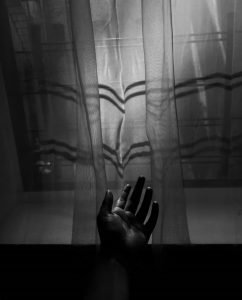
I was photographing the streets of Delhi for work, and during the initial phase of the lockdown, when I was going through many emotions personally and workwise, I couldn’t help but think of the people I met on these assignments. I wondered about the hardships those individuals were facing since the pandemic began and the fact that their sufferings must have escalated.
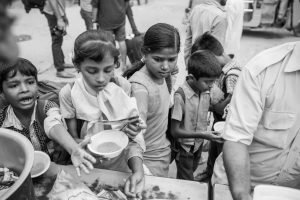
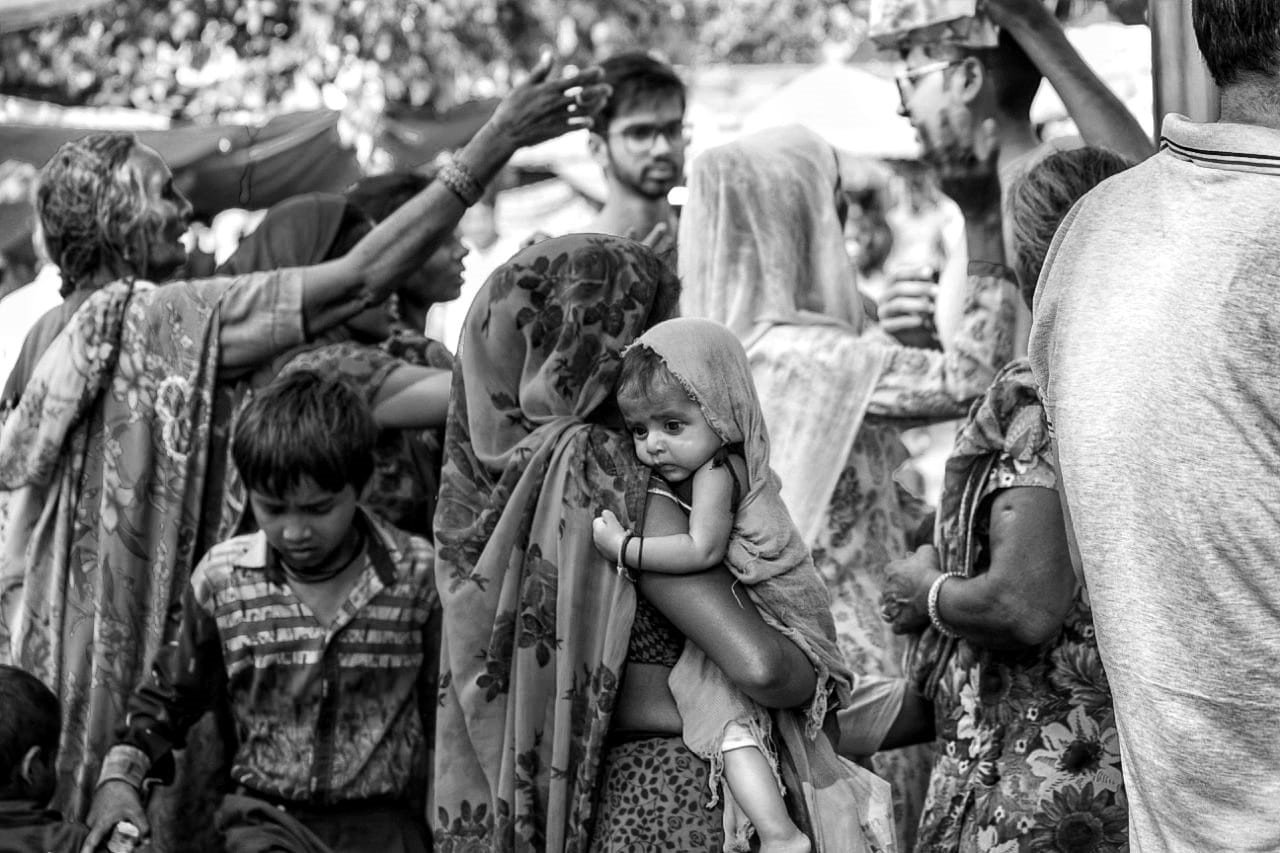
The two photos above were taken outside Gurdwara Sis Ganj Sahib (Chandni Chowk) and Hanuman Mandir (Connaught Place), respectively, in Delhi, at a time when people offer ‘prasad’, a material substance of food that is a religious offering in both Hinduism and Sikhism, to the people waiting outside.
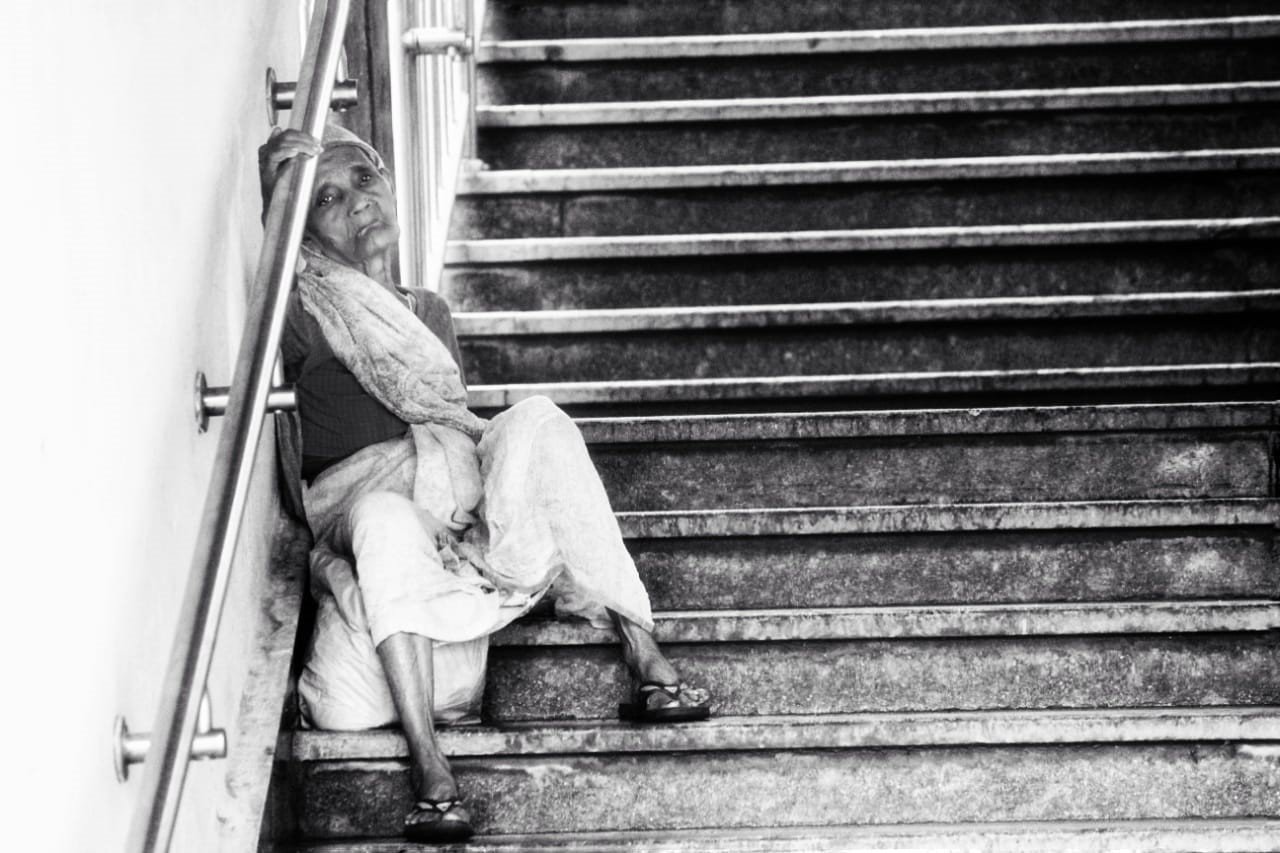
I met this woman at Mayur Vihar Metro station in Delhi – she didn’t ask for money or food but instead told me her story about how she was asked to leave her home after her husband passed away. She didn’t want me or anyone else to help her.

Shot in Nizamuddin West, Delhi.
Because I spent most of my time listening to their stories, there was a lingering thought that I kept going back to which was “why?”
Why is the situation what it is? Why do these people have very few foreseeable solutions? Why are they facing what they are facing? Why is the situation not improving from what it was? Why are we not able to help them even though some of us really want to?
I believe that through stories, we share a sense of passion, fear, sadness, hardships, joy, and we find a common ground with other people so that we can connect and communicate with them. Stories can give us the answers we seek. They can inspire, teach, inform, and mobilise.
But I knew I won’t be able to meet anyone or go on shoots anytime soon, so I started documenting the walls of my house, clouds, mirrors, spots, and ways in which I could spend these difficult days of plateau.
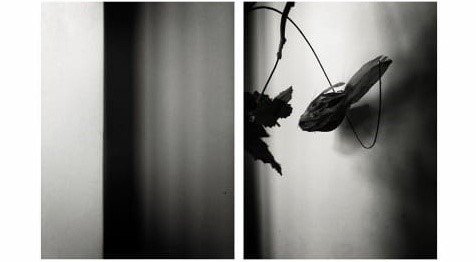
I read this somewhere – “Our home is the witness. It is the stage and life is a theatre. It makes us as we make it. We are the things we collect as they collect us. We are where we come from. The home is a witness and no witness is mute.”
And I guess this is true. Staying in a lockdown (with the few people I care about) made me learn to notice my house more often and seek great comfort in it.

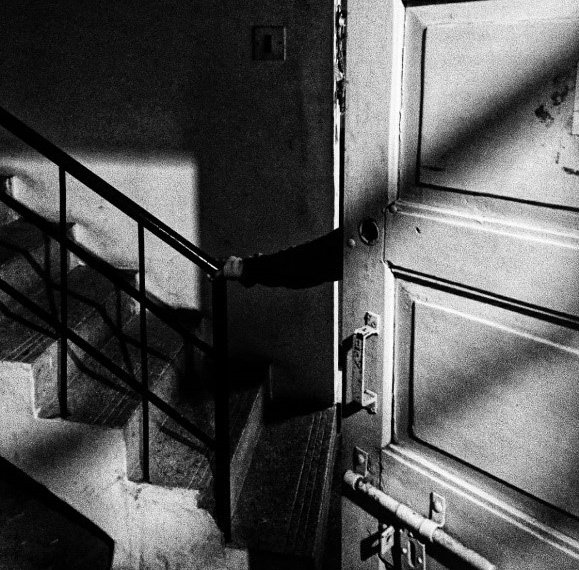
I share my photographs with my friends, and once one of them asked: “how many times can you photograph the same corners of your home?” I remember saying that there are not many times I’ve gotten a feeling of home, so I think I can photograph it as many times as I could.

Confined in the corners of ‘home’ are spaces breathing light that are often taken for granted. And within them, the people who linger are muses but evade being photographed. The lockdown has taught me to notice the cracks mapping my house and shifted the camera-eye to the ones who are the closest to me. I’d like to think my family is now desensitised to this documentation.


As our collective mobility is curtailed, another observation that I can’t help but think about is how for many (such as my aunt/uncle), the lockdown has not been different from the life they usually live.
Below is a photograph of them from the pre-pandemic world, strikingly similar to what I’d take now, while the one above is a recent photograph of them talking to their kids, trying to bridge the geographical gaps between them even during the pandemic. The days are occupied by the hum of a quiet routine. We may have the choice of opting out of this confinement soon, but these two (and many more) will probably continue living it.
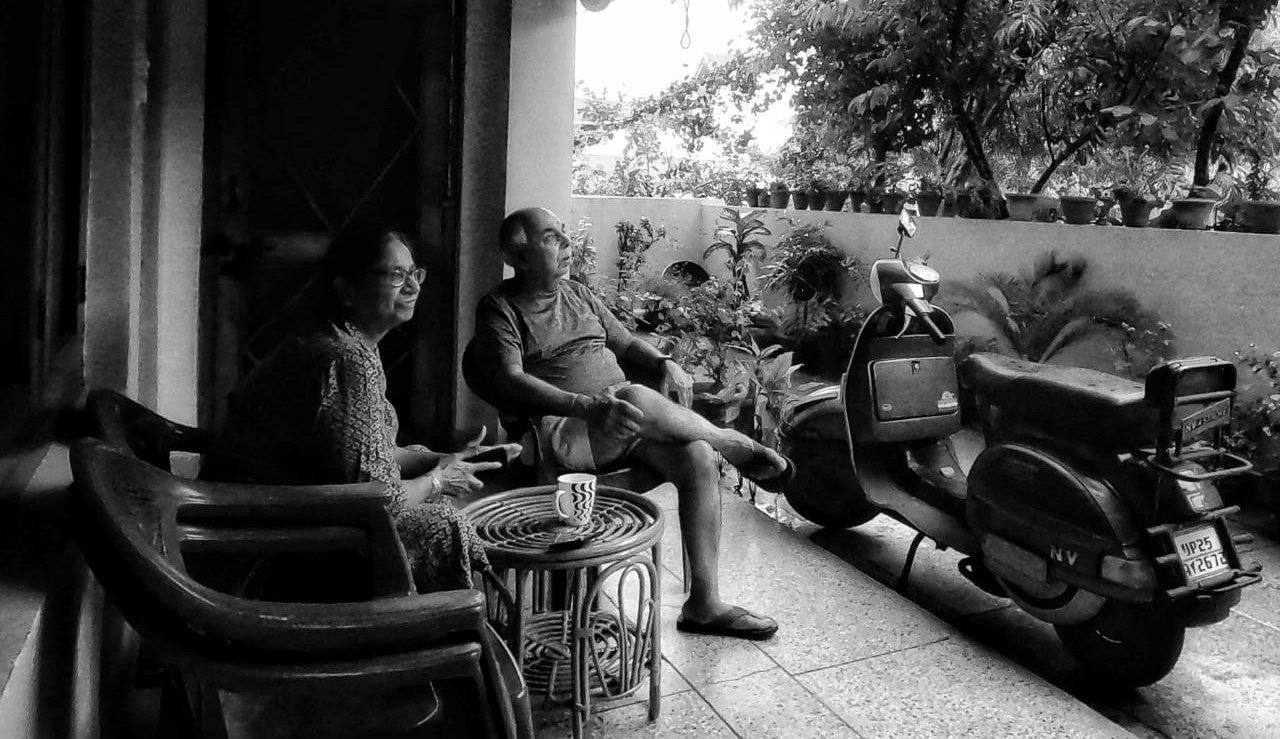
We constantly try to keep in touch, both physically and online. It strikes us that this time will figure in the future as a perpetual flag-post marking (“you know during Corona…”) despite how days melt into each other for now. Across these difficult days, amidst the misgivings of humanity and feeling too small to give back, to fix, to heal – I’m grateful to have the friendship of women who actively build a space of refuge for me, and here’s to them, virtually.

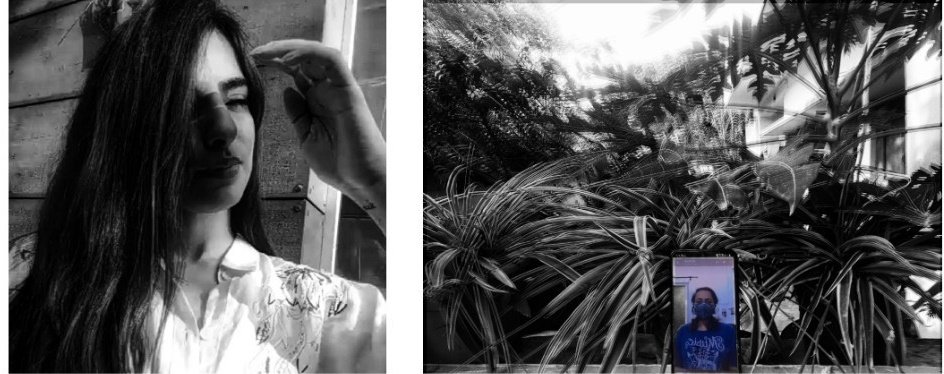

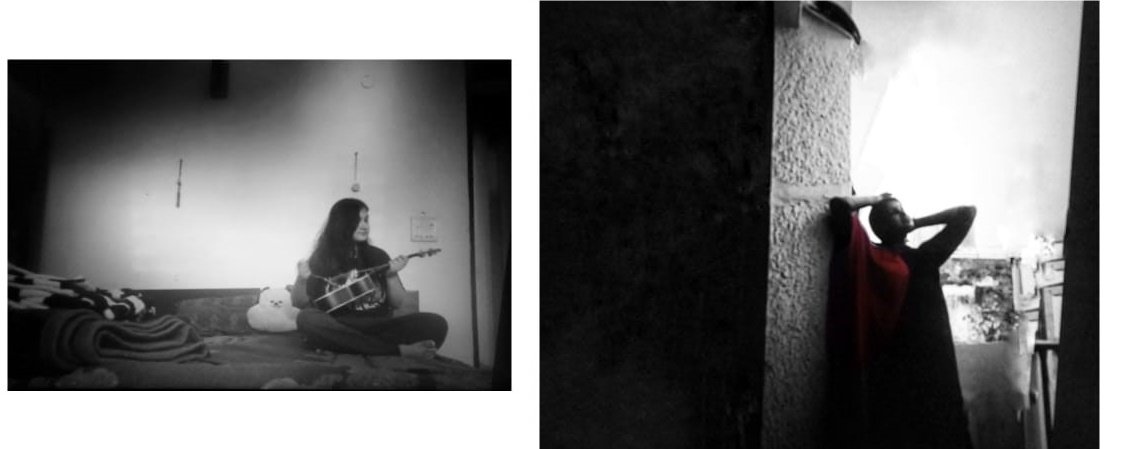

All the above photographs are virtual portraits during lockdown taken over a zoom call.
This little one has also helped me keep my sanity by learning and playing on the camera.
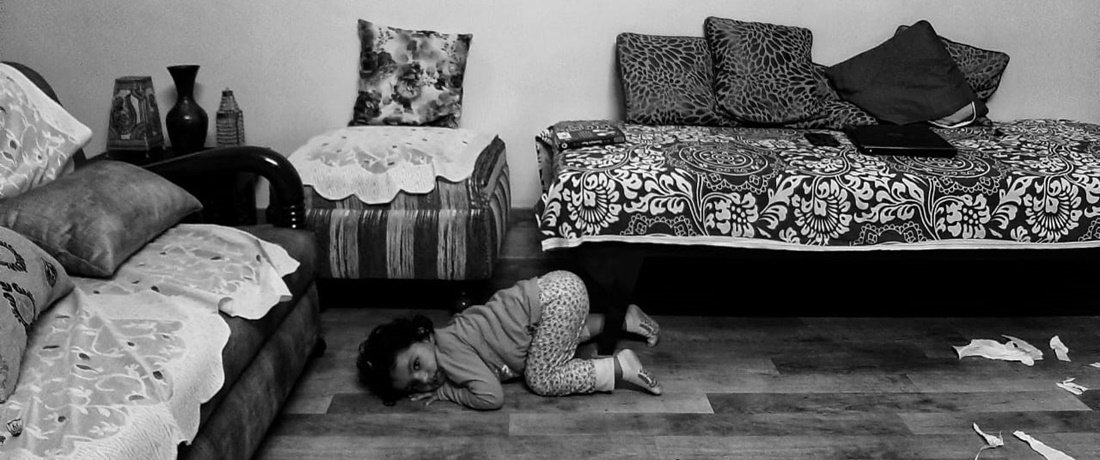
Shot when she was trying to look for a toy under the sofa.
I had to prematurely conclude the series as I fell sick and didn’t have the energy to continue documenting life around me. Here’s a self-portrait of me still trying to be ‘productive’.
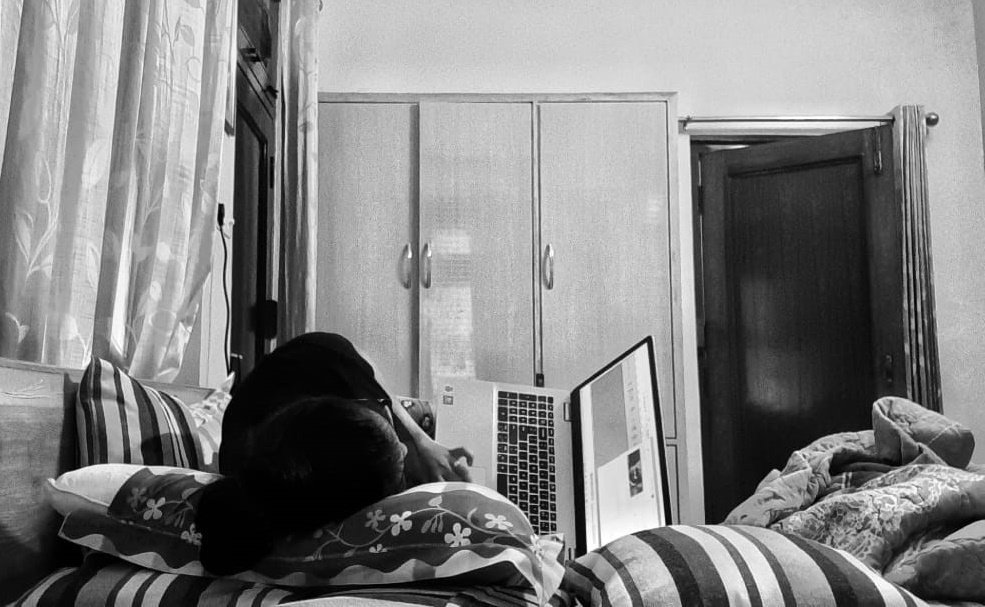
If you have any comments or feedback on this piece, please feel free to contact the author at richa.oberoi@i-probono.in.
Richa Oberoi – Senior Advocacy Officer, iProbono.








